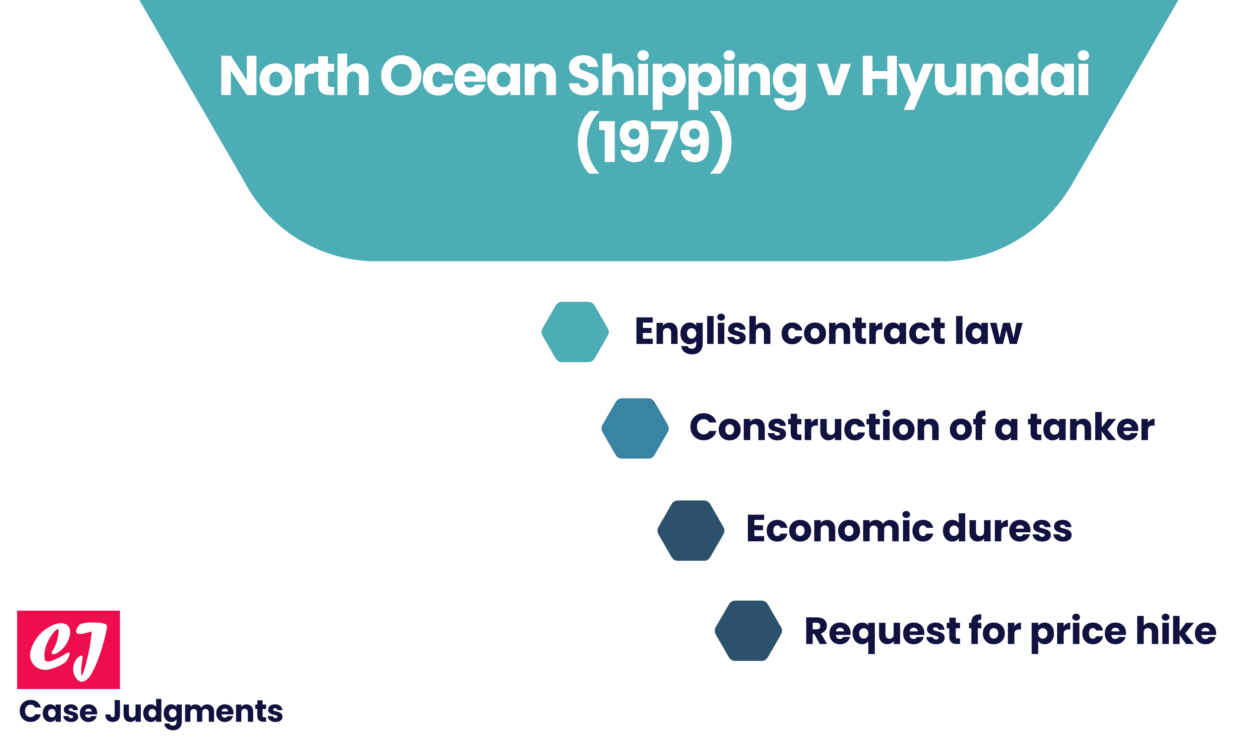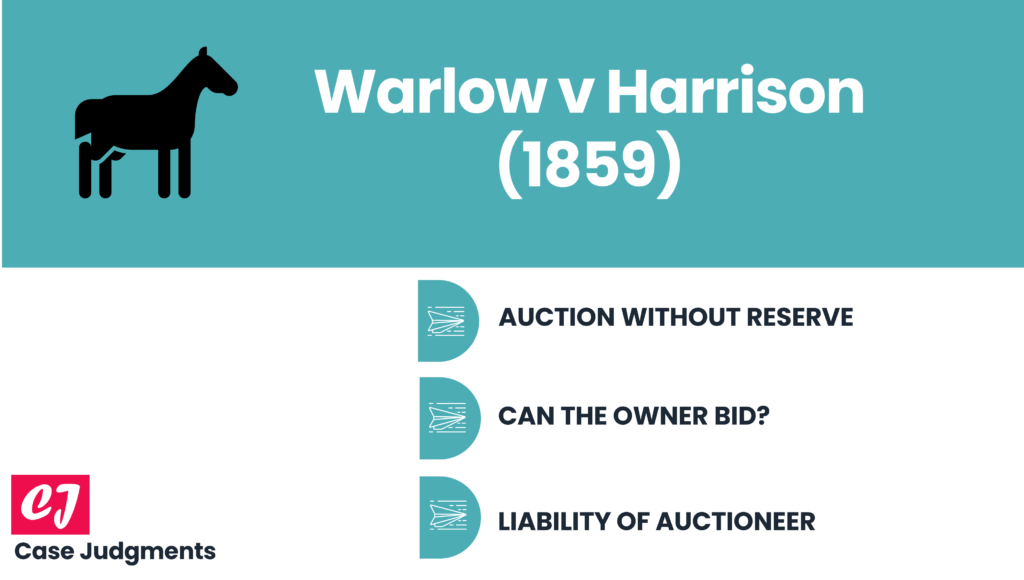
North Ocean Shipping v Hyundai (1979): The Atlantic Baron
Case name & citation: North Ocean Shipping Co Ltd v Hyundai Construction Co Ltd [1979] QB 705; (The Atlantic Baron)
Year of the case: 1979
Jurisdiction: Queen’s Bench Division, UK
The learned judge: Mocatta J
Area of law: Duress (Economic duress)
What does the case talk about?
North Ocean Shipping v Hyundai is an English contract law case that deals with economic duress.
Facts of the case (North Ocean Shipping v Hyundai)
“North Ocean Shipping Co Ltd” (abbreviated as “NOSC”) and “Hyundai Construction Co Ltd” (abbreviated as “Hyundai”) came to an agreement under which Hyundai would construct a tanker specifically for NOSC. The price of the tanker was specified in the contract to be paid in US dollars, and NOSC was required to make the purchase price payment in five installments. Hyundai opened a letter of credit as security repayment of instalments in the event of default.
The value of the US dollar dropped by 10% after the first installment was paid; consequently, Hyundai demanded that the price of building the tanker be increased by 10% in order to account for this change. They asked for an increase of 10% in each of the last four installments that were to be made. The claim was denied by NOSC, and it continued to make payments based on the original price for the next two installments. But Hyundai refused to accept these payments and maintained its position regarding the price hike. Hyundai made it very clear to NOSC that it would not proceed with the construction of the tanker unless it was granted the increase. In addition, the proposal of using arbitration to settle the dispute was also dismissed.
At the time of the dispute, NOSC was on the verge of concluding a lucrative agreement regarding the tanker’s chartering. As a result, in order to prevent the loss of this deal and to ensure that the tanker would be finished on time in order to be in compliance with the charter, NOSC agreed to the increase. In response, Hyundai agreed to extend the amount available under the letter of credit.
The tanker was delivered on time, and the remaining payments (with the additional sums) were paid without any objections being raised.
Eight months after the tanker was delivered, Hyundai was informed that NOSC was claiming the return of the additional 10% that was paid on the tanker’s final four instalments. They argued that the contract was voidable because it was obtained under duress and, secondly, that adequate consideration was not offered for the price increase.
Issues that were raised
Was the contract voidable for duress?
If so, could NOSC be granted a refund of the additional sums paid?
Judgement of the Court in North Ocean Shipping v Hyundai
The decision was taken in favor of Hyundai.
Hyundai Construction’s increase of the letter of credit served as consideration for NOSC’s increased payments under the contract.
In addition, it was determined that NOSC had impliedly affirmed the agreement in question because it had paid the final delivery instalment without raising any objections and had delayed making a claim for the return of the extra payments by more than six months.
Therefore, despite the fact that the contract was voidable on the grounds of duress, the claimants had delayed bringing their case for such a long period of time that it was considered that they had accepted the terms of the agreement and lost their right to cancel it.
The reasoning behind the decision
A party to a contract who enters into the contract in the context of threats affecting their economic interests or well-being will be able to exercise their right to economic duress.
However, because a contract that was entered into under duress is voidable but not void, the failure of the party who was subject to the duress to take action to have the contract set aside after the duress has ceased may be construed as an affirmation of the continuation of the contract by the party who was subject to the duress. As a direct consequence of this, the party subject to duress will be deprived of their ability to cancel the contract.
List of references:
- http://www.e-lawresources.co.uk/North-Ocean-Shipping-v-Hyundai-Construction-(The-Atlantic-Baron).php
- https://ipsaloquitur.com/contract-law/cases/the-atlantic-baron/
- https://www.lawteacher.net/cases/north-ocean-shipping-v-hyundai.php
- https://www.johnwiley.com.au/highered/blaw/content110/case_summaries/north_ocean_vs_hyundai.pdf
- http://netk.net.au/Contract/NorthOcean.asp
You might also like:
More from contract law:

